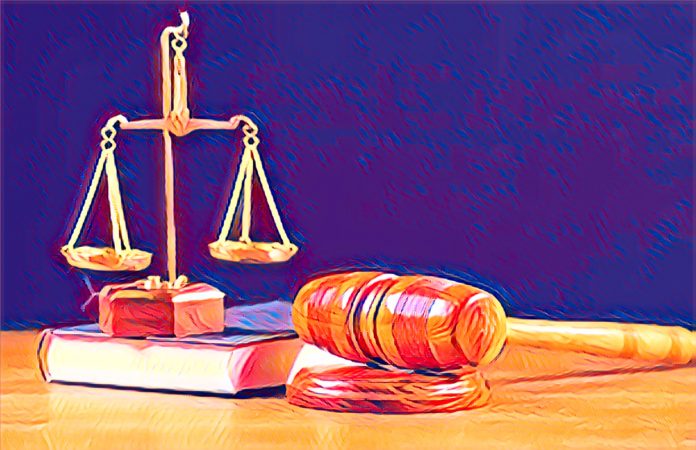KEY POINTS
-
Eight landmark court decisions in Nigeria between 2024 and 2025 significantly advanced constitutional rights, federalism, and judicial independence.
-
Key rulings addressed electoral transparency, gender equality in civil service, digital freedoms, tax jurisdiction, and climate justice.
-
Legal experts say the judiciary has reasserted its authority, but emphasize the need for institutional follow-through and policy reform.
Over the past year, Nigeria’s legal system has undergone significant transformation through a series of landmark court rulings that have not only reinterpreted existing laws but also reshaped the boundaries of civil liberties, electoral integrity, and institutional accountability.
These eight court rulings, delivered between May 2024 and May 2025, reflect a judiciary that has grown increasingly assertive in its role as the guardian of Nigeria’s constitutional framework.
From contentious political disputes to precedent-setting decisions on human rights and economic policy, these cases collectively underscore the evolving nature of Nigeria’s jurisprudence amid rising demands for democratic consolidation and court reform.
Landmark court cases that stirred debate and set precedents
The first of these was the Federal Republic of Nigeria v. Abdulrasheed Bawa, a high-profile corruption case involving the former chairman of the Economic and Financial Crimes Commission (EFCC).
The Federal High Court in Abuja ruled in late 2024 that Bawa’s arrest and prolonged detention without trial violated Section 35 of the 1999 Constitution. The judgment served as a rebuke to executive overreach and affirmed the judiciary’s role in safeguarding due process.
In another defining moment, the Supreme Court ruled on Labour Party v. INEC, in which the apex court faulted the Independent National Electoral Commission (INEC) for failing to promptly upload results during the 2023 general elections. Although the elections were not annulled, the court directed INEC to implement systemic reforms and introduce real-time digital auditing of votes.
“The credibility of elections rests not only on results but also on the integrity of the process,” Justice Musa Dattijo Muhammad stated in his judgment.
Constitutional clarity, gender equality, and the limits of power
One of the most widely discussed cases was Amina Yusuf v. Federal Civil Service Commission, in which the Court of Appeal ruled that the civil service retirement age must be applied uniformly to men and women, effectively striking down policies that had indirectly disadvantaged female officers.
“Gender parity must be more than rhetorical,” the presiding judge wrote. “It must be evident in how rules are enforced and lives are impacted.”
The Governor of Rivers State v. Federal Government tested the limits of federalism. The Supreme Court ruled that states have the right to collect Value Added Tax (VAT) within their jurisdictions, declaring the Federal Inland Revenue Service’s (FIRS) exclusive collection unconstitutional. This ruling sparked heated debate between federal tax authorities and state governors, with far-reaching fiscal implications.
Also notable was the case of Digital Freedom Foundation v. Nigerian Broadcasting Commission (NBC). In a ruling hailed by digital rights activists, the Federal High Court declared as illegal the NBC’s attempt to regulate online platforms without a clear legislative mandate.
“Freedom of expression extends to cyberspace,” the court said, “and any attempt to curb it must be done strictly within the bounds of law.”
In Nigerian Bar Association (NBA) v. National Assembly, the court struck down provisions in a proposed amendment bill that sought to strip the National Judicial Council (NJC) of its disciplinary powers over judges. The court maintained that such a move would undermine judicial independence and violate the doctrine of separation of powers.
The Judiciary’s reassertion in National life
The case of Chimamanda Okonkwo v. Nigerian Immigration Service gained widespread attention after Okonkwo, a dual citizen, was denied entry into Nigeria on claims of irregular documentation. The Federal High Court ruled in her favor, stating that Nigerians by birth cannot be denied re-entry, even if they hold a second nationality.
Finally, the controversial Coalition for Climate Justice v. Ministry of Environment marked a new frontier for environmental litigation. The court ruled that the government has a constitutional obligation to protect the environment and must uphold Nigeria’s commitments under international climate accords.
Environmental activists lauded the decision as a turning point for climate accountability in the country.
As Nigeria heads into a new legislative session and possible constitutional amendments, legal scholars and policy analysts believe these eight rulings will serve as cornerstones for future reforms.
“The courts have spoken clearly this year—on democracy, on rights, and on federalism,” said constitutional law expert Professor Funmi Adebayo. “What remains is the political will to enforce and institutionalize these gains.”



